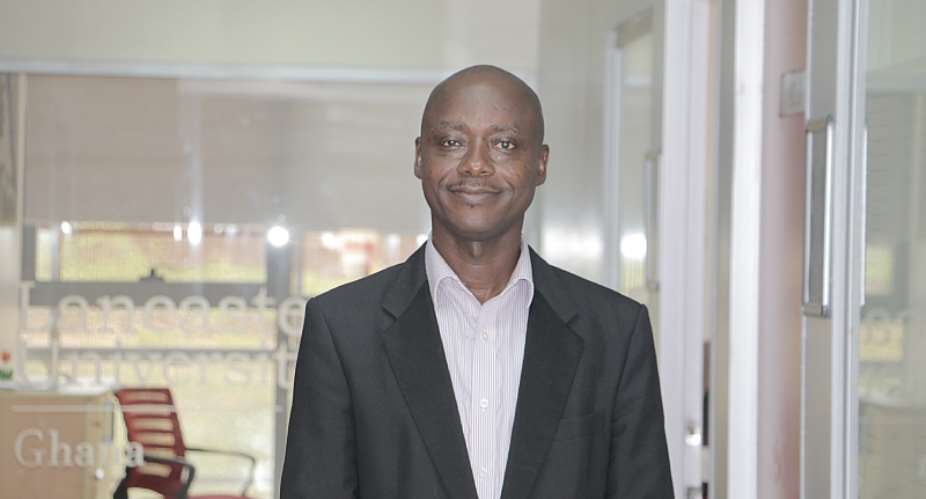The State of the Nations address is a constitutional requirement. The statement, titled “Message of the State of the Nation” (SONA) is in accordance with Article 67 of the 1992 Constitution of Ghana which states: “The President shall, at the beginning of each session of Parliament and before dissolution of Parliament, deliver a message on the state of the nation.”
President Nana Addo Dankwa Akufo-Addo will today present the state of the nation address in Parliament. The delivery would be the third under the governing New Patriotic Party (NPP) since it regained power to manage the country. The President is expected to state the gains chalked up in the economic, health, education, social protection, politics and agricultural sectors, as well as measures being taken to address the challenges in these sectors.
Parliament is expected to be punctual and be in the parliamentary chamber before the President’s appearance. It will be a breach of protocol for members to enter the chamber after the President has entered the House to deliver his address.
We expect the President to tell Ghanaians measures government is adopting to deal with national security and Ghana’s dealings with the global community. Security creates the enabling environment for development projects, programs and interventions to take-off. We expect the President to focus on the Police in terms of equipping, retooling and strengthening them. We expect him to speak about the reduction in vigilantism in terms of their violent activities and the general reduction in indiscipline. Security must be crucial in the President’s address.
We believe that the President will use the opportunity to outline progress made in the implementation of flagship projects, such as the free senior high school (SHS) education policy; one-district, one-factory; one-village, one-dam; one-constituency, $1 million and the Planting for Food and Jobs programme.
The Macroeconomic successes recorded in 2018 in terms of real GDP growth, Inflation, fiscal deficit, primary surplus, trade position and international reserve are admirable. The President is expected to touch on measures to build on these gains to benefit the poor, vulnerable, excluded and the unemployed section of the Ghanaian society. Our growth story must be inclusive and not jobless. Meeting the demands of the teeming unemployed youth in the country has been a major challenge. High unemployment is no doubt the most pressing issue of our time.
It is a national security issue because the devil finds work for idle hands. According to the Ghana Labour Force Survey report published in 2016, more than 1.2 million Ghanaians are unemployed. According to the report, the total unemployment rate for Ghana is 11.9%; the rate is higher among females (12.5%) than males (11.1%). It is commendable that the major government policies such as the one district, one factory; planting for food and jobs as well as the establishment of a Nation Builders’ Corps have all been geared at creating jobs.
Whilst implementing the flagship projects, efforts must be made to create permanent and decent jobs for the teeming unemployed. We expect the president to talk about supports to the private sector to complement initiatives to create jobs. This is because a strong private sector can offer the best sustainable solution to the unemployment challenge in Ghana.
The free SHS policy implementation is laudable and has provided immediate cash benefits to some parents. We expect the president to talk about measures put in place to minimize the infrastructural deficit that called for the introduction of the double track system and other possible sources of funding the Free SHS program for long-term sustainability. The president must demonstrate that the increased accessibility will not undermine the quality of our SHS graduates, teachers and pedagogical approaches.
We expect the President to speak on how the Ghana Beyond AID mantra is translated from an agenda to actionable activities that can generate real output, outcomes and impacts in terms of self-reliance, the structure of our economy, the nature of our infrastructure, the education of our young people, the acquisition of skills and attitudinal change.
We expect political praises and accomplishments in the address but these must not outweigh measures and collaborative efforts to address real development challenges.





 Former Kotoko Player George Asare elected SRC President at PUG Law Faculty
Former Kotoko Player George Asare elected SRC President at PUG Law Faculty
 2024 elections: Consider ‘dumsor’ when casting your votes; NPP deserves less — P...
2024 elections: Consider ‘dumsor’ when casting your votes; NPP deserves less — P...
 You have no grounds to call Mahama incompetent; you’ve failed — Prof. Marfo blas...
You have no grounds to call Mahama incompetent; you’ve failed — Prof. Marfo blas...
 2024 elections: NPP creates better policies for people like us; we’ll vote for B...
2024 elections: NPP creates better policies for people like us; we’ll vote for B...
 Don’t exchange your life for wealth; a sparkle of fire can be your end — Gender ...
Don’t exchange your life for wealth; a sparkle of fire can be your end — Gender ...
 Ghana’s newly installed Poland train reportedly involved in accident while on a ...
Ghana’s newly installed Poland train reportedly involved in accident while on a ...
 Chieftaincy disputes: Government imposes 4pm to 7am curfew on Sampa township
Chieftaincy disputes: Government imposes 4pm to 7am curfew on Sampa township
 Franklin Cudjoe fumes at unaccountable wasteful executive living large at the ex...
Franklin Cudjoe fumes at unaccountable wasteful executive living large at the ex...
 I'll 'stoop too low' for votes; I'm never moved by your propaganda — Oquaye Jnr ...
I'll 'stoop too low' for votes; I'm never moved by your propaganda — Oquaye Jnr ...
 Kumasi Thermal Plant commissioning: I pray God opens the eyes of leaders who don...
Kumasi Thermal Plant commissioning: I pray God opens the eyes of leaders who don...
